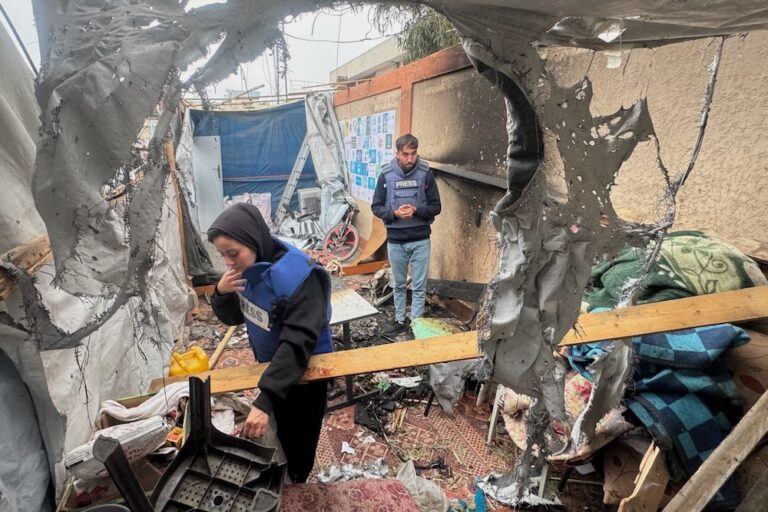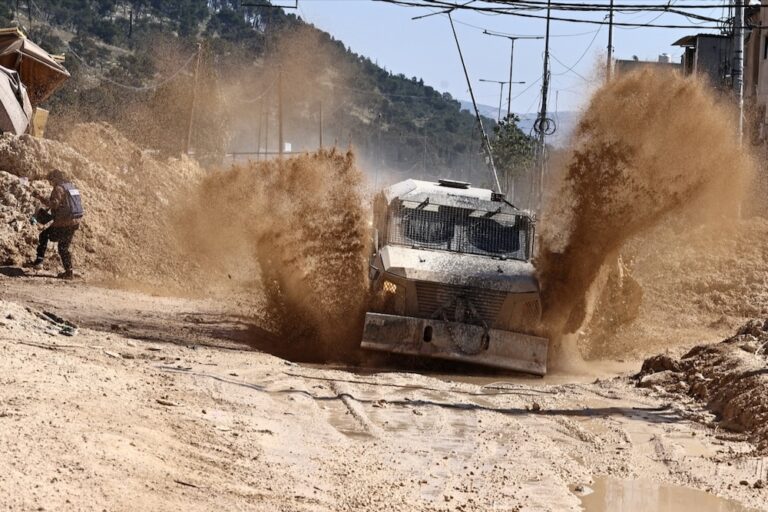The state of media freedom in the Palestinian territories continued to decline in September, with an increase in the number of violations perpetrated against journalists, particularly by the IDF.
(MADA/IFEX) – Ramallah, 6 October 2011- The state of media freedom in the Palestinian territories continued to decline in September, with an increase in the number of violations perpetrated against journalists, particularly by the Israeli Occupation Forces (IOF). There has also been a noted increase in the use of tear gas and rubber bullets during the weekly peaceful protests held across the West Bank, in addition to an increase in the number of Israeli police and settler perpetrated abuses. One particularly disturbing development is the reported use of three new weapons against unarmed crowds at close range. Two unusual weapons were used against demonstrators at Qalandia on 21 September, just 2 days prior to Mahmoud Abbas’ official UN bid for state recognition, including an unusually toxic teargas and a sonic weapon dubbed “The Scream” by IOF personnel, which led to the hospitalization of more than 20 protesters. The other weapon used was a type of explosive grenade, reported to have been used against a French journalist in Nabi Salah on 23 September.
In addition, Palestinian security services continued to harass Palestinian journalists in the past month, with several journalists summoned for investigation as well as the complete prevention of coverage and broadcast of Abbas’ UN address in the Gaza Strip on 23 September. Security services also put a Palestinian journalist on trial for slander based on a critical note he posted on the social networking site Facebook concerning the Ministry of Health.
In the light of this deterioration of media freedoms, MADA center welcomes the court’s decision to acquit journalist Alaa Al-Titi on all charges of breaching the peace and inciting sectarian violence through his work at Aqsa TV. Al-Titi was originally charged in October 2008. MADA commends the Palestinian judiciary, and demands that future cases involving journalists are not stalled and delayed for long periods because of the personal toll and professional disruption this causes, as in the case of Al-Titi, who after three years is only now gaining closure on the ordeal.
MADA additionally wishes to highlight the importance of facilitating the work of foreign journalists in the Gaza Strip, and not adding more procedures and restrictions to their work. BBC News website said that, BBC reporter John Donison was stopped at the Beit Hanoun crossing and told by officials that he must register his entry to the Ministry of the Interior five days before arrival to the Gaza Strip. Donison had to wait at the crossing but was eventually allowed to enter.
(. . .)


